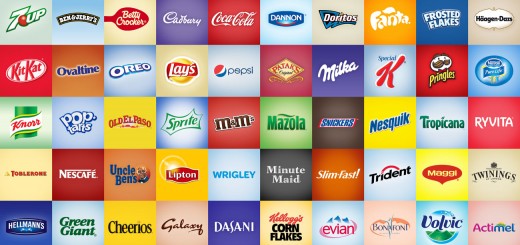ExchangeWire Weekly European Round-Up
ExchangeWire rounds up some of the hottest stories in the European ad tech scene, and in this week’s edition: The inevitable collision of adtech and martech nears; Germany’s top media owner to nurture programmatic advertising talent; A requiem for Yahoo’s RMX; ExchangeWire Research’s Rebecca Muir presages 2015 trends to look out for, and the ATS event series for 2015 unveiled.
Adtech and martech firms poised to lock horns
Separate pieces of research published this week demonstrates how the industry is nearing closer to the collision of adtech and martech firms, as SalesForce published its 2015 State of Marketing report, and a separate study from long-time ExchangeWire contributor Scott Brinker fundamental changes in how marketers will spend their budgets.
Salesforce’s globally State of Marketing 2015 report quizzes over 5,000 marketing professionals, and found 88% of UK marketers plan to increase or maintain their spend in 2015, with “marketing automation” recorded as the “number one priority” in terms of investment among marketers there.
The survey found that over 72% of UK marketers quizzed as part of the survey plan to increase spend in this area, with SalesForce claiming how the results are indicative of a massive shift from campaign-focused marketing, to “personalised 1:1 customer journeys”, meaning marketers are focusing much further up the marketing funnel.
This includes 38% of marketers (globally) planning to shift spend from traditional mass advertising to advertising on digital channels.
Meanwhile, Brinker’s study found the amount of companies in the martech sector has almost doubled in the last 12 months, with the number of vendors classified as operating in this field approaching 2,000.
This explosion in marketing technology is driving the rise of ‘marketing technologists‘, a new class of hybrid marketing/IT professionals who are architecting and operating increasingly sophisticated tech-powered capabilities within the marketing department, according to the report.
Brinker adds: “The real challenge is changing how firms think and behave in this hyper-connected, always-on, customer-controlled digital world. The nature of marketing has exploded from an ancillary communications function to the Grand Central Station of customer experience; and the bar for delivering great customer experiences is rising rapidly.”
But what does this mean for those companies whose business lies in the more traditional advertising sector: “Agencies, software vendors, systems integrators, and management consultants are all increasingly competing for influence with and dollars from the CMO.
“Innovation in marketing technology is outpacing most companies’ — and, frankly, most agencies’ — ability to absorb it. The future belongs to those who can develop the next generation of organisational and human capital fastest to harness these new capabilities.”
 German adtech hub launched, IAB debuts in Portugal
German adtech hub launched, IAB debuts in Portugal
Separate moves were made this week to establish Europe as a feasible tech hub for aspirant entrepreneurs interested in the adtech space in both Germany and Portugal, with ProSiebenSat.1, one of the biggest media corporations in Europe, launching a specialised startup accelerator vertical dubbed LaunchpAD, that will focus on nurturing start-up firms involved in the adtech and data analytics sectors, in either Berlin or Munich.
During the 3-month programme, start-ups will be offer help to beta-test their product within the ProSiebenSat.1 Group, including a €25,000 investment, including introductions across the European Media Alliance, incl. broadcasters TF1 in France or Channel4 in UK.
Meanwhile, it was also announced this week that the Portuguese Advertising Association, along with advertising agencies and publishers, have agreed to band together to form the IAB Portugal.
The new outfit will be led by Bernardo Rodo, OMG Portugal, managing director, the new trade organisation will join 26 other national IAB chapters, as well as form part of the regional IAB Europe, and will help promote the growth and development of the digital media industry there through events, research, education, public policy initiatives, the development of best practices and technical guidelines, and more. The outfit is headquartered in Lisbon, and began operations this week with a leadership conference to facilitate discussion and debate on the digital media landscape there.
ExchangeWire has previously noted how the European adtech scene has never been in ruder health, with the trade press littered with news of funding rounds for start-ups here, yet the ‘European Google’ remains elusive, and adtech firms born and raised in Europe are starting to look elsewhere for an exit in the hope of a higher valuation.
One such examples is France’s Teads, which this week announced a new financing operation of £20m, with 50% raised from an increase in capital, while the other 50% takes the form of a mid-term line of credit, led by existing investors Gimv, Partech and Elaia as well as BPI, ahead of its planned IPO on the Nasdaq later this year. Teads CEO, Loic Soubeyrand told ExchangeWire earlier: “Nasdaq is better for us because analysts know this kind of market very well, and we can have more cash with good valuations to deploy our futures innovations and reinforce our leadership.”
With Europe hosting such successful adtech companies – think AdForm, Criteo, IPONWEB and MediaIQ – it’s clear that talent does exist to not only run, but launch globally successful adtech firms, but as the examples of Criteo, etc, choosing to seek elsewhere for their big exits, draws question marks over the viability of generating the just rewards warranted by launching such an outfit can be achieved here.
 The opening Echo Chamber hears a requiem for Yahoo’s RMX
The opening Echo Chamber hears a requiem for Yahoo’s RMX
This week saw the debut of a new weekly column penned by ExchangeWire founder Ciaran O’Kane, who this week market the passing of the Right Media Exchange (RMX), charting its history as the first ad exchange in the industry, and how its eventual demise is significant of the return of the ad network.
RMX was a good place to buy unsold Yahoo inventory, and the biggest piece of innovation the adtech space had seen since third-party ad serving became the norm. But through a combination of mismanagement and inevitable loss of critical employees (looking at Brian O’Kelley, now the AppNexus CEO, rather than Mike Walrath) RMX became a shell of itself.
O’Kane added: “O’Kelley went off and built AppNexus with a bunch of DoubleClick and RightMedia alumni, and started to eat into RMX’s core business.
“Google started to join the dots in its ad stack, bundling inventory from AdSense and third-party ad net sources. It then opened up to third-party demand, establishing itself as the most important buying point in this industry.”
However, Yahoo was able to hang on with the help of Israeli ad networks continuing to supply it with demand, but when they went the way of O’Kelley, and it was inevitable that a media company like Yahoo was always going to struggle to run an open exchange, and hence it opted for its walled garden strategy.
“We are going back to the future where programmatic isn’t quite programmatic, but more of an iteration of the old school ad net model,” adds O’Kane.
Read here for a more detailed analysis.
 Where will the money flow in 2015?
Where will the money flow in 2015?
January wouldn’t be January without the deluge of predictions which come forth from all corners of the online advertising boxing ring. Here, ExchangeWire Research’s Rebecca Muir gives her summary of the most popular themes which have emerged in some of this year’s predictions.
Programmatic trading boomed in 2014, the IAB UK predicted that 47% of display advertising was traded programmatically in 2014, nearly doubling from 28% the previous year.
In her analysis, Muir notes: “This explosive growth has been fuelled by several factors, including: education; improved inventory, and better tracking plus targeting.”
She goes on to note how programmatic video supply is likely to advance rapidly with 40% of digital video ad spend predicted to come from programmatic by 2016, as the supply of inventory in brand-safe environments comes on to the market.
“In 2015, we will see programmatic morph from a channel to a buying mechanism as more inventory in a number of formats starts to be traded programmatically and this moves towards becoming standard,” says Muir.
“The most obvious stepping-stone is the $70bn TV advertising industry. Late last year, Channel 4 announced a European trading first, from 2015 it will offer advertisers a digital marketplace to buy advertising programmatically – with access to its first-party viewer data – on its new on-demand (VoD) platform, All 4.
“This announcement was made alongside pioneering research with Cog Research and neuroscientist Dr Amanda Ellison at Durham University, which found that advertising on TV on-demand players outperforms YouTube (and other
network, social and auto play video platforms) for viewer acceptance, engagement and attention.
Adap.tv, Videology and TubeMogul have all partnered with Channel 4, and it would not be surprising if we start to see these DSPs offer combined TV and online video programmatic campaigns.
At the moment, this would require significant advances in data integration, as no Channel 4 first party-data is to be shared with partnering DSPs, but there is no denying that it is technically possible to join online browsing data with programmatic TV advertising.”
Click here to read more about her predictions for 2015, including how we are likely to continue the debate around native advertising, display advertising is likely to boost mobile advertising (as well as search), plus how martech firms are likely to lead consolidation in 2015.
 ExchangeWire lifts the lid on the 2015 ATS event series
ExchangeWire lifts the lid on the 2015 ATS event series
ExchangeWire is priming itself for a busy 2015, with its ATS event series consisting of six confirmed events taking place across three continents, where it will help chart the progress of the programmatic advertising sector, as ad tech becomes the underpinning technology of the entire advertising industry.
The programmatic advertising sector has undergone an overwhelming 12 months, with the sector advancing from a relative fringe technology that was the subject of an elite few, to one of the key phrases that was on the lips of almost every C-level exec in the advertising industry.
To mark this trend, ExchangeWire broadened its horizons in 2014; expanding its conference programme, intensifying coverage in key geographies, and doubling its efforts to increase market data through primary research. All of this will continue in 2015.
ExchangeWire‘s ATS 2015 series will kick-off with a return to continental Europe with ATS Paris,taking place on 22 April, and will be followed with a return to Berlin in conjunction with Adzine on 2 June for the joint AdTrader Berlin, hosted in the Kosmos Cinema there.
From here ExchangeWire will take the the ATS conference series to the APAC region, beginning with ATS Singapore to be staged on 6 July, at the Marina Mandarin Hotel, followed by ATS Tokyo, taking place on 21 October, at the Westin Hotel Tokyo.
Following from these events, ExchangeWire’s Autumn series will commence with its flagshipATS London event taking place on 14 September, at Queen Elizabeth Hall South Bank, and will be wrap-up with the second annual ATS New Yorkevent, on 3 November, at the SVA Theatre, NYC.
ExchangeWire will also have a presence at several other key industry events throughout 2015, such as Cannes Lions and Dmexco, and also intends to make its panel-based TraderTalk TV event series (see image left) a more regular occurrence, after debuting in December 2014. Here, discerningly selected attendees will be able to engage in cutting edge debate with some of the leading companies and personalities in the ad tech industry in an informal setting.
Those interested in participating in any of the above events can learn more by emailing:info@exchangewire.com
The post ExchangeWire Weekly European Round-Up appeared first on ExchangeWire.com.



